Can drinking vinegar soften blood vessels?
56-year-old Zhou, diagnosed 3 years ago with hypertension, hyperlipidemia and carotid plaque; recently always dizzy and a little acid reflux. Today she came for a follow-up blood pressure of 180/90mmHg, cholesterol of 8.3mmol/L, LDL cholesterol of 4.8mmol/L, carotid artery plaque aggravated compared to the previous one, and a CT has been done for cerebral infarction, and the gastroenterologist suggested her to do a gastroscopy, but due to hypertension and cerebral infarction, she didn't do it for the time being, and would do it when her condition is stabilized.
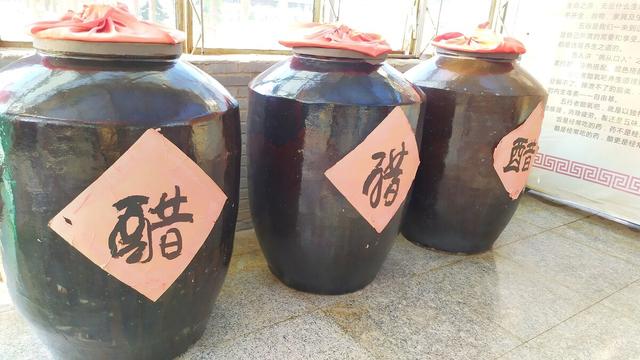
Sister Zhou said how can this be the case, this 3 years every day to adhere to a glass of vinegar, how blood pressure and blood lipids so high, carotid plaque also aggravated, but also cerebral infarction?
I said: do you usually take antihypertensive or lipid-lowering drugs?
Zhou big sister said: no ah! At that time, high blood pressure, high blood fat, my neighbor moncler outlet online told me to drink vinegar on the line, there are no side effects, his high blood fat on drinking vinegar drink good. Drinking vinegar can also soften blood vessels and prevent cardiovascular diseases, so I have been drinking vinegar treatment.
The price of believing that drinking vinegar lowers blood pressure and lowers lipids and softens blood vessels is: higher blood pressure, higher lipids, increased carotid plaque, and cerebral infarction .....
Zhou was the one who believed a lot of rumors, and that's why her condition has now worsened and she had to be hospitalized.
Rumor 1: Softens blood vessels
Blood vessels cannot be softened!
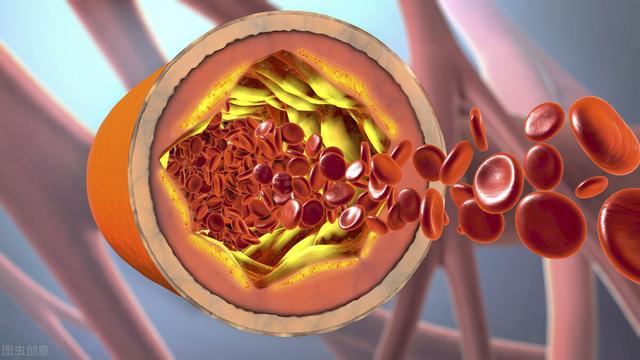
When we are born, our blood vessels are smooth and elastic, and as we age, starting in our teens, many of us experience a gradual hardening of our blood vessels, called atherosclerosis.
In other words, all of us have atherosclerosis at a certain age, to a greater or lesser extent, and even this sclerosis is as common as our gray hair and wrinkles. However, if some people fail to live a healthy life, coupled with genetic factors and high blood pressure or diabetes or hyperlipidemia, then the hardening of the blood vessels of these people will accelerate and worsen. Even some of them will develop atherosclerosis, that is, on the basis of atherosclerosis, the formation of intravascular plaques, these plaques are like thin gruel, so called atherosclerosis. The aggravation of these plaques will lead to cardiovascular stenosis, causing ischemia, and after the plaque rupture, blood clots may be formed, triggering myocardial infarction or cerebral infarction.
So atherosclerosis is present in almost everyone, but not necessarily a disease, and atherosclerotic requires high priority and may require medication.
But whether it's hardening of the arteries, or atherosclerosis, it's not reversible. It's like gray hair dyed black, wrinkles with hyaluronic acid, etc. This this is a blindfold, not really reversing gray hair or wrinkles.
There are no medications that can directly soften blood vessels, let alone foods that can soften blood vessels, which is even more unimaginable!
Rumor 2: Drinking vinegar lowers blood pressure and blood lipids

Some people say that drinking vinegar can lower blood pressure and lipids, take Zhou's neighbor, Mr. Wang, who said that his high blood lipids were normalized by drinking vinegar. First let's say mild hypertension or hyperlipidemia, especially elevated triglycerides. This part of the people through a healthy life, such as adhere to exercise, weight control, healthy diet, quit smoking and alcohol and so on way, blood pressure and blood lipids may also return to normal. In other words, even without drinking vinegar, moncler outlet online Wang's blood lipids may return to normal.
Moreover, there is no evidence to prove that drinking vinegar can lower blood pressure or lipid; we stupidly think that if drinking vinegar can lower blood pressure and blood fat, then so to lower blood pressure drugs and lipid-lowering drugs have long been eliminated. Hospitals no longer need to see patients with hypertension and hyperlipidemia.
Why can't Sister Chow figure out such a simple question? Because there are too many too many rumor mongers or rumor mongers like next door moncler outlet store Wang!
Rumor #3: Drinking vinegar
Drinking vinegar directly will not directly treat any disease, including lowering blood pressure and lowering fat to soften blood vessels are rumors. Detoxification, weight loss and anti-cancer are all rumors!
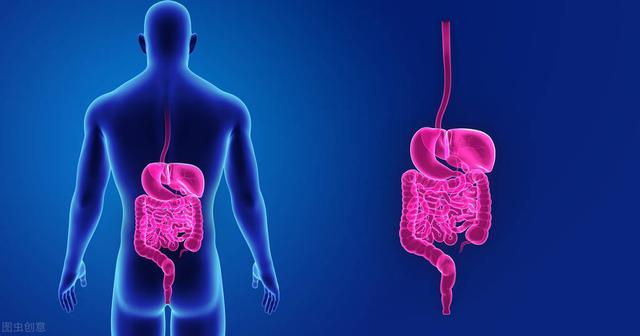
Vinegar is an aqueous solution containing mainly acetic acid at 2% to 9% (mass fraction), but also a variety of amino acids and many other trace substances. Vinegar is a fermented sour liquid condiment, mostly made from glutinous rice, sorghum, rice, corn, wheat, as well as fermented sugar and alcohol. It is consumed sensibly as a seasoning, appetizing and eliminating food. That is, a part of our life, but not drinking vinegar, only as a flavorful condiment. If you drink too much vinegar directly may cause damage to the mouth, esophagus and intestines.
Like sister Zhou, drinking vinegar for 3 years, blood pressure and blood lipids did not come down, carotid plaque aggravation, but also cerebral infarction, appetite is not good, but also acid reflux.
In short, vinegar is just one of the condiments, no need to exaggerate the role of vinegar, not to mention the rumors and rumors drinking vinegar can cure diseases, harming people and themselves!
A spoonful of vinegar a day to soften blood vessels?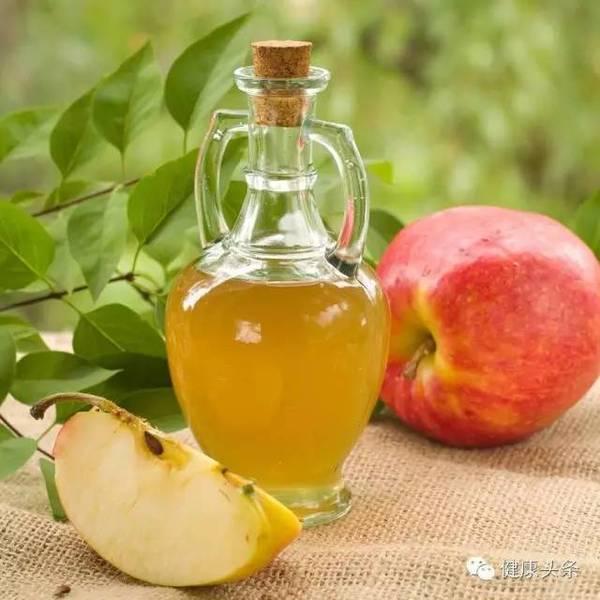
Whether in China or abroad, "drinking vinegar for health" has a long history and a large number of followers.
Many people believe that drinking a mouthful of vinegar every day, or eating a little vinegar soaked things, can soften blood vessels, reduce fat and blood pressure, enhance immunity, anti-cancer detoxification, beauty and weight loss and so on.
Vinegar as a seasoning, if used properly, can make dishes crisp and appetizing. But is vinegar really that amazing?
What are the ingredients in vinegar?
Vinegar is a fermented food.
In China, there are aged vinegar, balsamic vinegar, and health vinegar, while abroad there are apple cider vinegar, vinegar drinks, and vinegar capsules.
The main ingredients of either vinegar are water and acetic acid.
The carbohydrates in the grain or juice are first converted into ethanol by the yeast and then further converted into acetic acid by the acetic acid bacteria.
Because of the diversity of raw materials and fermentation microorganisms, vinegar may also contain some citric acid, malic acid and lactic acid. In addition, some vitamins, amino acids, minerals and polyphenolic compounds in the raw materials will enter into the vinegar, resulting in different flavors of different vinegars.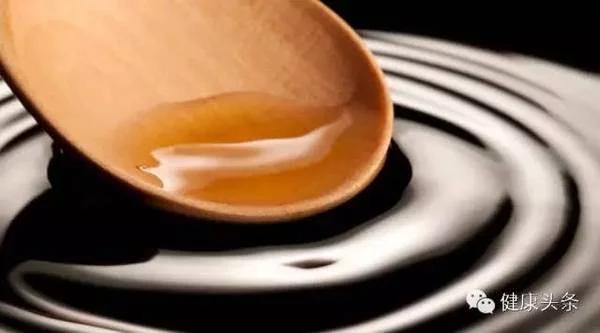
What is the nutritional value of vinegar?
When vinegar is publicized as having health benefits, it is often said that it "contains XX kinds of micro-nutrients needed by the human body," and therefore has "great nutritional value" and "miraculous health effects.
"How many nutrients does it contain" is a correct statement of nonsense. Any unpurified food contains a myriad of nutrients.
What people need is not only "how many kinds", but also "how much". Except for water and acetic acid, the concentration of other nutrients in vinegar is very low. Considering that the sip of vinegar you drink every day is only a dozen milliliters, the amount of nutrients in it is even more negligible.
Are the health benefits of vinegar reliable?
In China, people's belief in the health benefits of vinegar is based on "belief" and "traditional medicine", and few people have conducted scientific tests.
In the West, the long history of apple cider vinegar has led to its 'miraculous effects' in almost any known ailment. Although it is a 'traditional treasure' of the West, modern Westerners have seriously tested it to see how reliable the legendary miracle effects are. Below are some of the more researched ones.
Vinegar sterilizes and disinfects?
This use dates back to BC, especially for disinfecting wounds. But it is not a good method of sterilization.
This is because the concentration of acetic acid will not damage the normal cells of the human body, the inhibition of disease-causing bacteria is also very limited; if the concentration of acetic acid is high enough to effectively sterilize, then the damage to human cells can not be ignored, that is, the so-called "kill the enemy a thousand, from the loss of eight hundred". Use vinegar to disinfect the room, the effect is far less than ordinary disinfectant.
When there is no better way, the lesser of two evils, sterilization with vinegar is acceptable. But modern medicine already has so many safer and more effective methods, why should we settle for the second best, using vinegar to sterilize and disinfect?
In today's world, using vinegar to sterilize is similar to not taking a plane or a high-speed train, but having to ride a donkey to Beijing.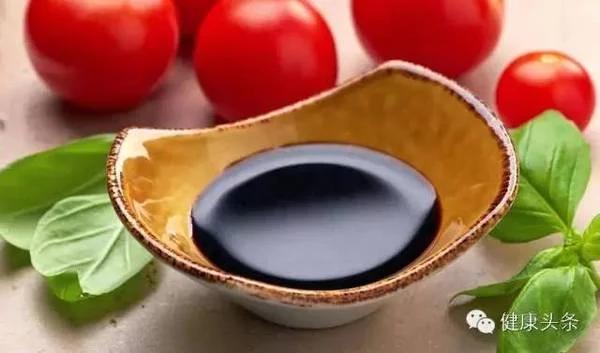
Can vinegar soften blood vessels and lower blood lipids?
The claim, which originated more than a decade ago in a number of animal experiments and epidemiological investigations.
It should be noted that the studies themselves were very preliminary and their value was mainly in attracting further research. But after so many years, there are no more reliable experimental results published, so this effect is still doubtful. It's not that drinking vinegar is bad, it's just that there's really no relevant experimental data to strongly support the claim that drinking vinegar can lower blood lipids and soften blood vessels.
Vinegar prevents cancer?
There are micronutrients in vinegar that are thought to help reduce the risk of certain cancers, and a number of in vitro experiments with cultured cancer cells and experiments with rats support such a hypothesis.
For example, in 2003, a study in China showed that drinking vinegar was beneficial in reducing the incidence of esophageal cancer, but its cancer-preventive effects were similar to those of eating vegetables and beans.
A similar study in 2004 showed that drinking vinegar increased the risk of bladder cancer by 4.4 times!
Similarly, there are some experiments to study the effect of vinegar on diabetes, high cholesterol, hypertension, weight loss, etc. These experiments are basically in vitro cellular experiments, animal experiments, or epidemiological investigations, and the very few human clinical experiments have small sample sizes.
In the field of scientific research, such studies are called "preliminary studies" and their conclusions are for reference only and need to be further confirmed. However, in business publicity, "researched" often becomes "confirmed by modern scientific research". This is really unscientific!
As for the other various "effects", most of them do not even have a "preliminary study", so it is just a matter of "if you believe it, it works".
What about foods that have been soaked in vinegar?
Many people like to soak things in vinegar, or soak nutrients in vinegar, believing that after 'vinegar refining', there will be magical effects. In fact, in this process, vinegar only plays the role of a solvent and does not produce new substances.
If the soaked items are directly edible, then it is much more efficient to ingest the "target ingredients" by eating them directly. If the soaked food cannot be eaten directly, then it is necessary to consider what the "potent ingredients" are and how efficiently they can be extracted after soaking.
In the case of those things that people usually soak in vinegar, the 'efficacy ingredients' are often imagined as well - expecting them to have any kind of health function is still basically wishful thinking as well.
To summarize.
Two more final points to emphasize:
Drinking highly concentrated vinegar straight from the bottle may cause damage to your teeth, mouth and throat. Some flavored vinegars also contain a certain amount of sodium, so those with high blood pressure should be especially cautious. Don't let your blood vessels not 'soften' into, and your blood pressure rub off on you.
Vinegar may react with some medications, so try not to drink too much vinegar before or after taking medication.
To summarize: vinegar, a good seasoning, but health care, I am afraid that it is difficult to be this important task.
Drink can soften blood vessels has been in folklore for many years, many people are convinced. It may not have occurred to you that, in fact, this is all a misconception.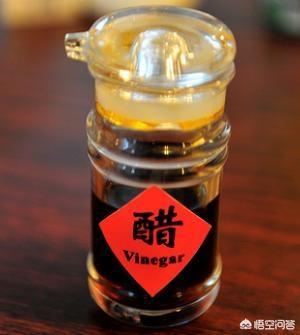
Many people have the preconceived notion that bones, fish spines, and eggs soaked in vinegar can be softened, and that the body's blood vessels can be softened after drinking vinegar. This idea is too naive, too preconceived. The human body itself has a very strong buffer system for acid and alkali, vinegar into the stomach, to participate in the body's normal metabolism, first metabolized into carbon dioxide and water. It is simply not possible to reach the blood vessels directly, much less by drinking more vinegar on the softening of blood vessels.
The occurrence of cardiovascular disease in the human body is often due to uncontrolled blood pressure, blood lipids, blood sugar, it is not possible to drink vinegar can be improved or alleviated. The best treatment should be formal medication and surgery.
Not only that, if you drink a lot of vinegar directly, because the acidity of vinegar is too large, but also may damage the gastric mucosa, excessive drinking vinegar is more will burn the esophagus.
Want blood vessel health, not vascular disease, the best way is to actively control blood pressure, blood fat, blood sugar and other risk factors, at the same time, scientific exercise, away from tobacco and alcohol, peace of mind, which is the reliable way of blood vessel health.
I. Defining the causes of vascular sclerosis
Vascular sclerosis and stenosis are often caused by hyperlipidemia, hypertension, and hyperglycemia leading to endothelial damage in the vasculature.
Appearance of lipid deposition, fibrosis, chronic inflammation and other slowly formed atherosclerosis, atherosclerosis plaque attached to the blood vessels, only to cause blood vessel narrowing.
Second, the nutritional composition of vinegar
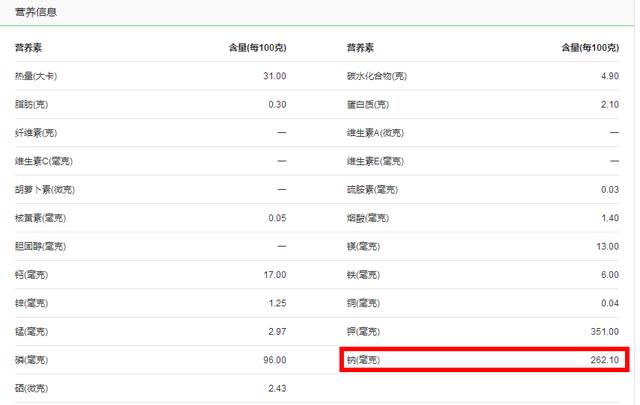
I don't see the main ingredient, the main ingredient in vinegar is acetic acid, there are also various organic acids, amino acids, and so on.
Acid, etc., is good for boosting stomach acid production.
Third, why do people think vinegar softens blood vessels?
1, vinegar is acidic to dissolve some of the harder substances, such as some calcium salts.
2, vinegar can dissolve to reduce the absorption of fat. And the reason for this conclusion is that vinegar feels able to dissolve fat, after eating some greasy, and then eat some vinegar, you do not feel greasy.
IV. Metabolic process of vinegar in the organism.
When vinegar enters the organism, it is first in the stomach, which is also acidic all right, but as soon as it enters the duodenum it is neutralized by the alkaline (bicarbonate) pancreatic fluid. It becomes esters and water. So there is no dissolving of calcium salts.
Vinegar has the effect of unctuousness because it can stimulate the secretion of gastric acid. Accelerate the discharge of gastric juice, promote the secretion of bile, pancreatic juice and intestinal fluid, help digestion, reduce esophageal discomfort and other effects. Thus achieving the role of unctuousness.
In summary, vinegar by itself does not soften blood vessels.
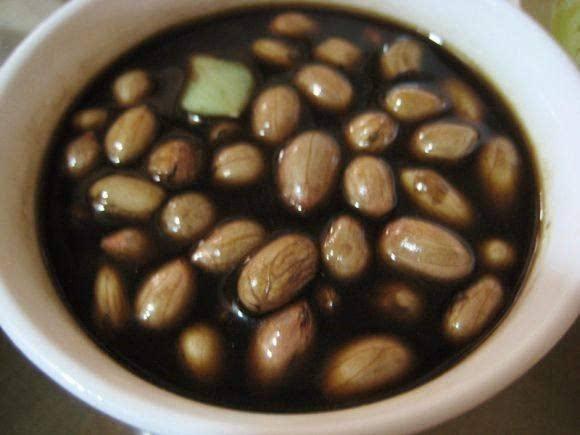
Fifth, the danger of drinking a lot of vinegar
Drinking vinegar directly in large quantities, the acidity of vinegar is too great, and it is a relatively large stimulus to the esophagus and gastric mucosa, and may
Damage the gastric mucosa and burn the esophagus.
Can vinegar really soften blood vessels? Do you believe it? Let's see what the doctor says.
Vinegar is a common household condiment that can be used to make a wide variety of delicious.But in recent years some people have linked eating vinegar and health, saying that vinegar can soften blood vessels. Is this claim correct, let's take a look at it today.
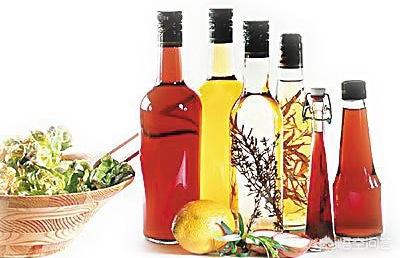
First, let's understand what it means to soften blood vessels.
As a person ages, everyone has a different form of hardening of the blood vessels.The blood vessels themselves are very elastic, and the walls are very soft in order to allow blood to flow smoothly through them. However, if the blood vessels become arteriosclerotic, the walls will be thickened or hardened, which can cause various cardiovascular and cerebrovascular diseases in serious cases.
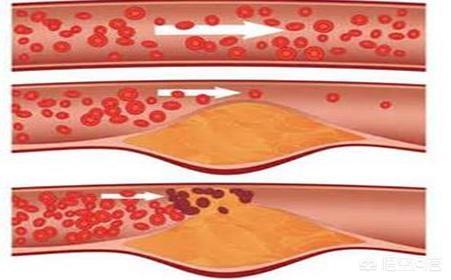
The main components of vinegar are acetic acid (with a content of 0.4% to 0.6%) and small amounts of tartaric acid and citric acid.Everyone knows that putting fish bones in vinegar makes them soft, this is because the vinegar dissolves the calcium phosphate out of the bones, but not for the blood vessels.
There is a strong stabilizing system in the bloodstream, vinegar to participate in the normal metabolism of the body, metabolized to carbon dioxide and water, it is not possible to reach directly to the bones, the environment of the body will not be easily affected by the pH of the food source, theAcid goes in with alkali to neutralize, and alkali goes in with acid to neutralize. The vinegar that you drink goes into the bloodstream through metabolism, and its pH value and acid-base value do not change. So the saying that eating vinegar softens blood vessels is not credible!
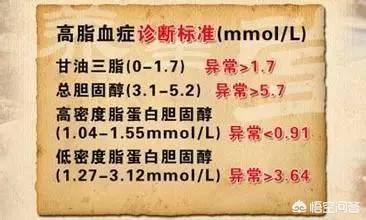
There is also a claim that eating vinegar can soften blood vessels, dissolve calcium and fat in the blood vessels, and thus solve the problem of atherosclerosis, which is equally unbelievable!
First.Eating vinegar does not soften blood vessels, and secondly, the main component of atherosclerosis is not calcium, and if it becomes calcified hard plaque instead, there is no danger.
Dangerous plaque is a soft plaque, very thin, if there is pressure, or the weather turns cold, or even a sudden force, can lead to plaque rupture, once the plaque rupture, the platelets will gather and block the blood vessels, this hard plaque is usually instead of rupture, so atherosclerosis is not the main problem is not a problem of calcium, but is related to the fat, and the most important problem is not a problem of calcium, but is related to the fat.Therefore eating vinegar does not help with atherosclerosis.
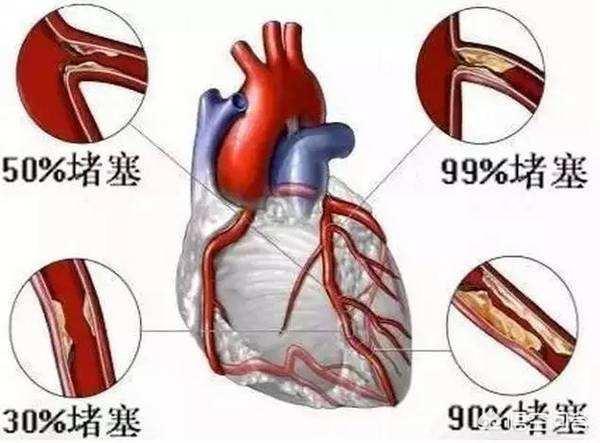
There is also some damage to the body if you consume large amounts of vinegar
1.Because the main component of vinegar is acetic acid, or acetic acid, which is inherently corrosive, theThe gastric mucosa is much more delicate than our skin, so the intake of large quantities of vinegar on the gastric mucosa there is some damage.
2. The main effects of vinegar are appetizing, antiseptic and bactericidal.Experts recommend that the daily amount of vinegar should not exceed 6 milliliters.
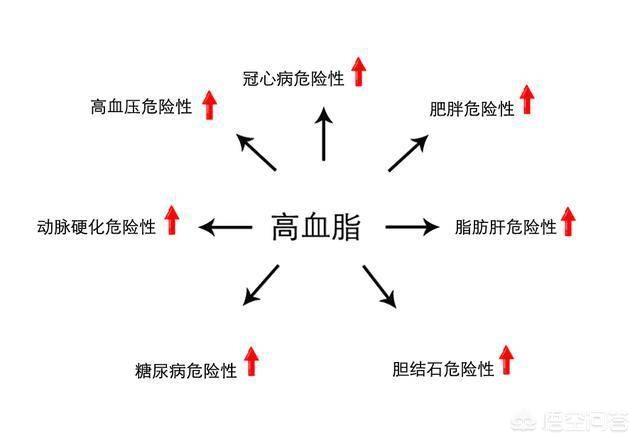
Sclerosis of the blood vessels can lead to high blood pressure, theIn severe cases, it can lead to coronary heart disease, cerebral thrombosis, cerebral vascular rupture and other diseases, preventing diseases of the blood vessels, to do:

Nutritionally balanced, with a light diet and plenty of vegetables and fruits.Daily life is based on grains, less salt, less greasy, high-fat foods, and less foods containing butterand, at the same time, to increase exercise.Weight control, as little as possible smoking and drinking, and keep a happy mood, so as to reduce blood lipids, maintain the elasticity of blood vessels have certain benefits.
"Kudos" is a form of encouragement!
Staying healthy is just missing a reminder to open up a silver lining to your health!
Vinegar does not soften blood vessels, which is simply ineffective unless the blood vessels are soaked directly in a jar of vinegar, where the proteins contained therein change causing them to soften.
When vinegar is drunk into the stomach, it mixes with stomach acid, then enters the small intestine to neutralize it with alkaline fluids, and is finally absorbed into the bloodstream, where the concentration of acetic acid is so low that it cannot soak the blood vessels, and it is quickly cleaned up by the liver and metabolized into carbon dioxide and water.
In fact, once aging and hardening of blood vessels occurs, it is very difficult to return to young and soft, whether it is eating food or taking drugs, we can do may just stop or slow down its further aging and hardening, to avoid deterioration too fast.
5 effective measures to stop or delay further hardening of blood vessels:
1,give up smoking and limit alcohol consumptionSmoking is a major risk factor for cardiovascular disease, and quitting smoking significantly reduces the risk of cardiovascular disease, with some reports suggesting that the risk of cardiovascular disease for those who have quit smoking for more than four years is 54% lower than for those who continue to smoke. As a reminder, while smoking must be completely stopped, alcohol can still be consumed in small amounts (no more than 20 grams of alcohol a day), and small amounts of alcohol will not increase the risk of cardiovascular disease.
2,A balanced diet, meaning the right amount of energy, less sodium, trans fatty acids, saturated fatty acids, added sugars, and other vascular-harming ingredients, and more potassium, unsaturated fatty acids, whole grains, vegetables and fruits, and other vascular-healthy ingredients.
3,Weight control, Excess energy and the obesity it causes is one of the important factors leading to vascular sclerosis and increased risk of cardiovascular disease. Obese people to lose weight, maintain appropriate weight to avoid fat is one of the effective measures to protect blood vessels and heart.
4,exercise in moderation, increased exercise can improve metabolic indicators such as blood pressure, blood lipids, and blood glucose, promote blood circulation, and reduce the risk of vascular sclerosis and cardiovascular disease.
5, for people who already suffer from high blood pressure, high blood lipids, high blood sugar, high uric acid should be actively treated, this "four high" is the most direct and important factors leading to increased risk of vascular sclerosis and cardiovascular diseases, to beRational use of drugscontrol these metabolic abnormalities.
Author: Wang Xingguo, Director of Nutrition Department of Dalian Central Hospital, Chief Physician; Vice President of Liaoning Provincial Nutrition Society; Sina Weibo Medical V; China Nutrition Science Communication Star, engaged in clinical nutrition treatment, nutrition training and teaching, and nutrition popularization and communication for more than 20 years, published "Encyclopedia of Eating", "Growing Fetus, Not Growing Flesh", and other popular science books for more than 20 books.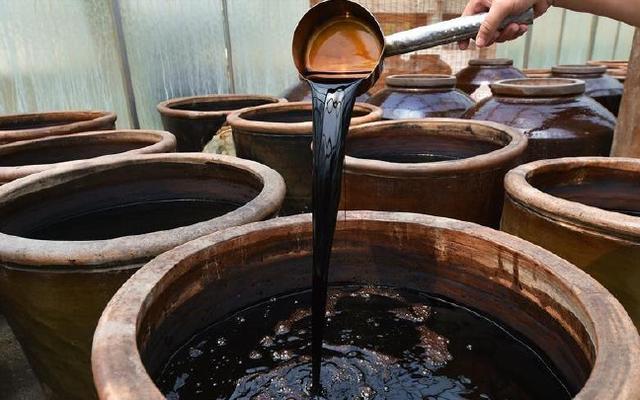
Vinegar is a common condiment at home, many delicious food to use it. But in recent years, vinegar has been people have been "deified", online about the vinegar of a variety of claims, some people say that drinking vinegar can soften blood vessels, drinking vinegar can lower blood sugar, and some people say that drinking vinegar can change the acidic body, is it really so?
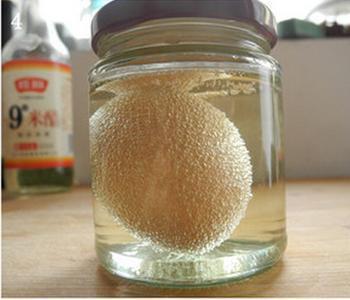
Rumor 1: Drinking vinegar can soften blood vessels?
Many people believe that drinking vinegar softens the blood vessels. In fact, we have a large stabilizing system in our body, acetic acid will be neutralized by alkaline digestive juices in the small intestine, and the acetic acid that can enter the bloodstream is very little, and it will soon be cleared by the liver. So drinking vinegar can soften blood vessels is not reliable, vinegar drink more on the stomach and esophagus will cause some damage, because our gastric mucosa and esophageal mucosa are very delicate, and if there are ulcers, it will be more unbearable to the corrosion of acetic acid.
There are also many folk recipes about vinegar, such as vinegar soaked eggs, vinegar soaked soybeans, vinegar soaked black beans, etc., these foods will not play a positive role in softening blood vessels, if you really want to protect the blood vessels, we must first control their own blood pressure, blood glucose and lipids, which are the prerequisites for good health.

Rumor 2: Drinking vinegar can lower blood sugar?
The United States has conducted a research experiment on the diabetic population, the experiment shows: drink 30 ml of vinegar before meals, indeed can make diabetic patients of postprandial blood glucose value down, for the pre-diabetic population, insulin sensitivity will increase to 34%, the population of type 2 diabetes will increase to 19%.
This is mainly because vinegar can help the body to slow down the gastric emptying speed, and then inhibit the gastrointestinal glucose uptake rate, but we must not because of the vinegar can help lower blood sugar and reduce the use of medication or do not take medication, and gastrointestinal problems, gastric ulcers, gastric acid secretion of people can not be used in this way to drink a lot of vinegar.

Rumor #3: Drinking vinegar removes the thorn stuck in your throat?
Some people get stuck with a fishbone and use the method of drinking vinegar, saying that it can soften the fishbone and make it go down, and still the more acidic the vinegar, the better, but in reality, the vinegar that you drink in just stays for a very small amount of time, and won't do much good.
If you are really stuck with a fishbone, the most appropriate way to deal with it is to open your mouth wide and look in the mirror to see if you can see the fishbone, if you see the fishbone, gently use tweezers to clip it out, but if you can't see the fishbone, then you must go to the hospital to deal with it.

Rumor 4: Drinking vinegar can change an acidic body?
Many people believe that vinegar is alkaline and can change our acidic body. In fact, our human blood has a series of buffer systems, the pH level is quite stable, there is no scientific evidence to prove that drinking vinegar can change the blood pH level.
Glad to come and answer your questions.
First of all, what people usually refer to as hardening of the blood vessels is usually theatherosclerosisThis is a pathologic change. In recent years, the incidence of hypertension, hyperlipidemia, and hyperuricemia has increased, and hardening of blood vessels has gradually become more common and younger.
The social rumor that drinking vinegar can soften blood vessels is usually based on the belief that: hardening of the blood vessels is due to calcification, and the blood vessels will slowly become as hard as bones, and soaking them in acidic vinegar will bring them back to a soft state.
In fact, this statement is not scientific. Because the hardening of blood vessels is not calcification, but the blood lipid deposits on the wall of the tube to form a plaque. This plaque is very fragile, easy to fall off the rupture, if ruptured, platelets will be clotted, so the blood vessels will be more blocked.
Also, even though vinegar tastes acidic, it is alkaline after being consumed, digested and metabolized by the body, so vinegar is actually an alkaline food. Also, although food has a very important effect on human health, the whole process is very complex and delicate, so even if you drink vinegar, it does not have a direct effect on the blood vessels.
Keeping blood lipids, blood pressure, blood sugar, etc. at the right level is fundamental to keeping blood vessels young.
Please give me a like if you found my answer helpful~ (83)
Can't.

The main function of vinegar is:
1, beauty and skin care, because the main component of vinegar is acetic acid, which has a strong bactericidal effect on the skin and hair to play a good protective role.
2, anti-cancer effect, vinegar contains anti-tumor active substances, with anti-cancer effect.
3, eliminate fatigue, eating the right amount of vinegar or in the bath water slightly add some old vinegar, can reduce the amount of lactic acid in the body, prevent and eliminate muscle fatigue.
Drinking vinegar can soften blood vessels is actually a folk misconception, vinegar can dissolve calcium, but atherosclerosis is not simply a problem of calcification, atherosclerosis plaque manifested as lipids and necrotic tissue plunge for degenerative lesions, vascular sclerosis refers to atherosclerosis within the blood vessels plaque formation, vascular elasticity is reduced, purely by drinking vinegar can be softened blood vessels is not based on science. Vinegar in the body does not play a role in softening blood vessels. Maintaining the health of blood vessels in many ways such as: light diet, eat less greasy food, more exercise, quit smoking and alcohol, etc., by lowering blood lipids to maintain the elasticity of blood vessels.
Author: You Xiangmei (Director, Department of Nutrition, No. 117 Hospital of the PLA, Expert Consultant of China Clinical Nutrition Network)
Vinegar as a condiment is good for controlling blood pressure, and a little bit of vinegar when cooking can make the food more flavorful, so you can put less salt and reduce the risk of high blood pressure. But when a little bit into a big mouthful, not only can not soften blood vessels, but also may burn the esophagus and gastric mucosa.
As we age, many people can suffer from vascular diseases such as atherosclerosis. Hardened arterial plaque is mainly composed of, some people think that vinegar can dissolve calcium, but the calcium in the arterial plaque exists in the blood, when the vinegar is drank into the stomach, it is not able to change the pH level of the blood. Moreover, the pH level of human blood has its own rules, and if it is out of balance, health will be affected. On the contrary, acetic acid, the main component of vinegar, is corrosive and burns the gastric mucosa and esophagus, causing severe pain.
If you really want to make your blood vessels healthy, why don't you change your healthy lifestyle, such as not smoking, controlling your weight, exercising moderately, controlling your three highs, reducing your fatty food intake, etc.?
This question and answer are from the site users, does not represent the position of the site, such as infringement, please contact the administrator to delete.